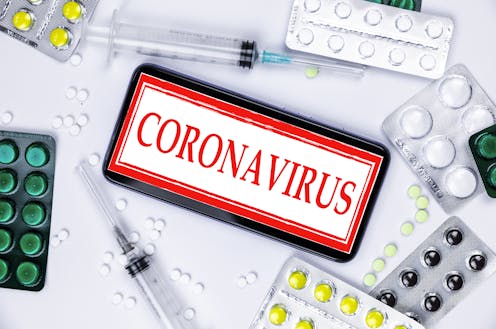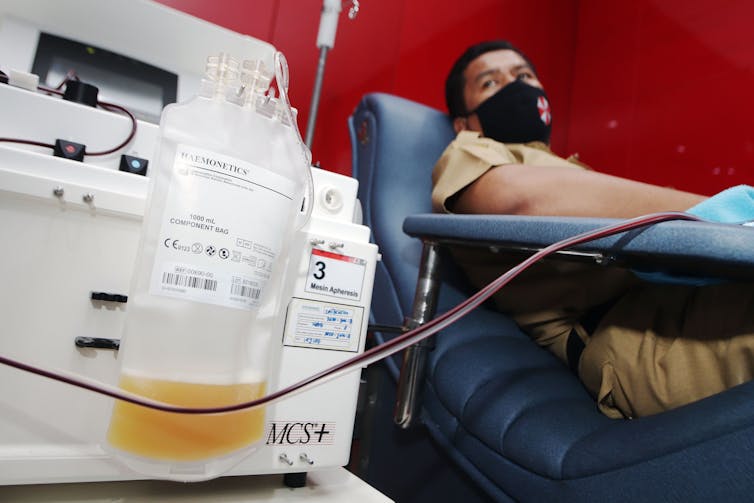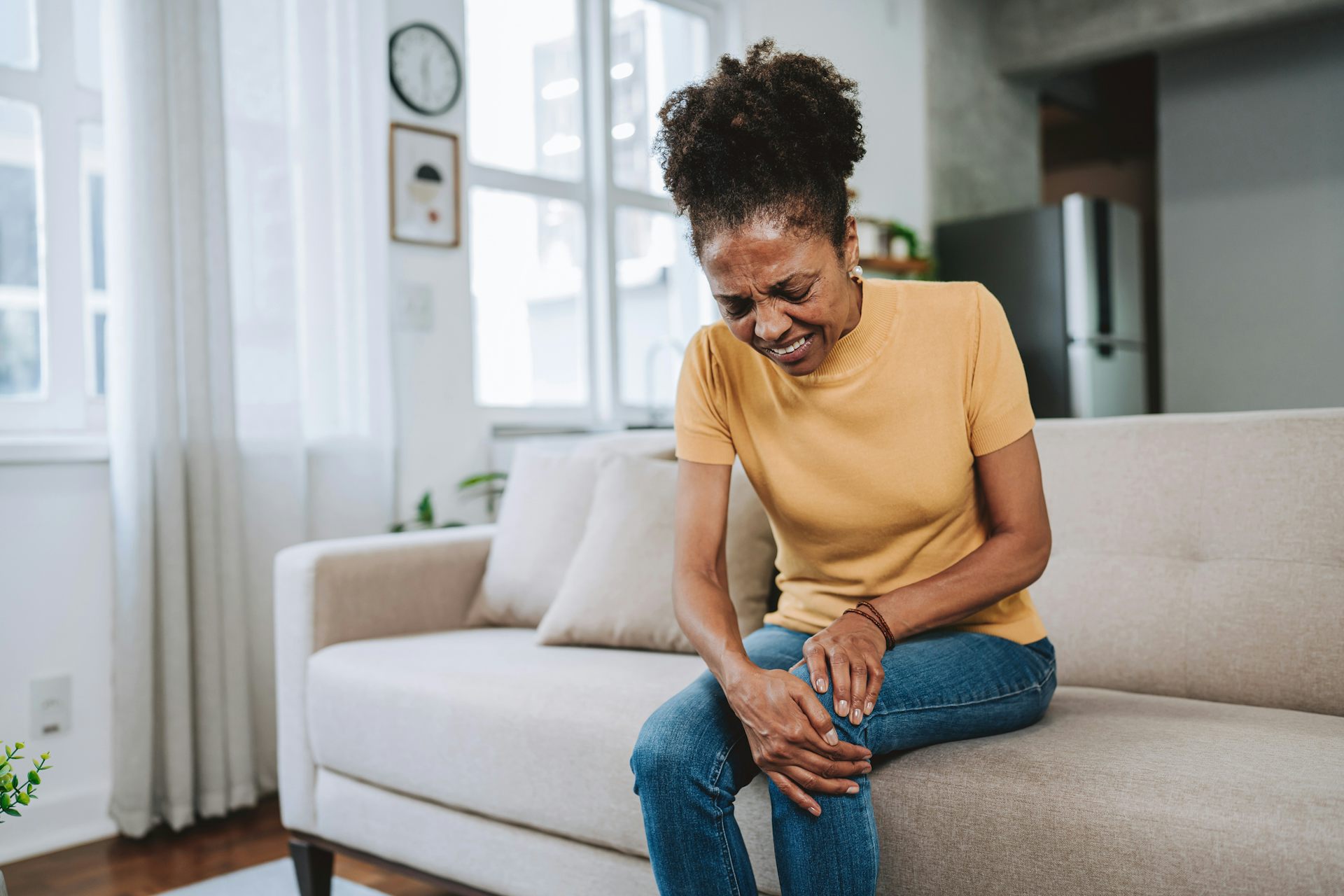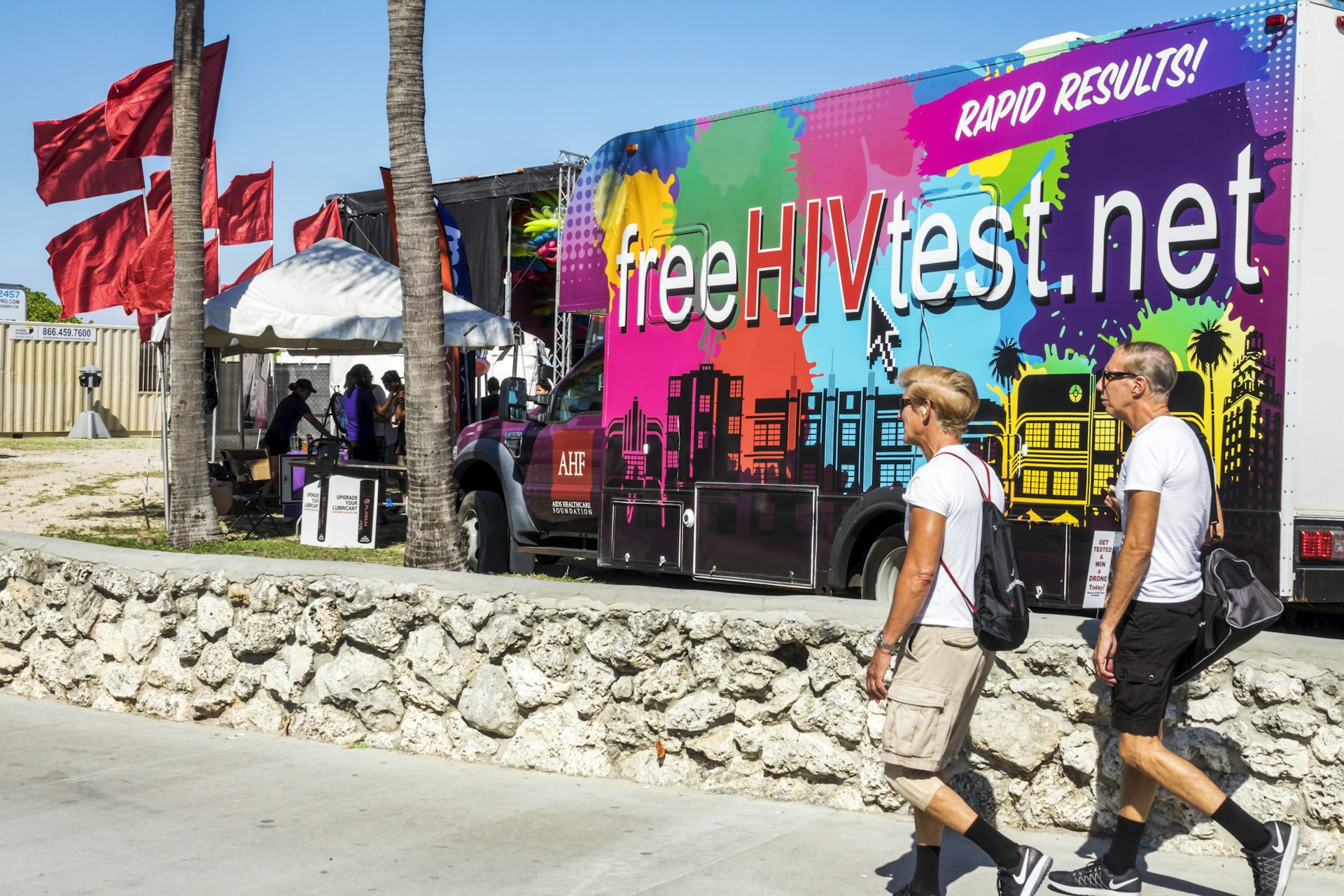Which drugs and therapies are proven to work, and which ones don't, for COVID-19?
During the last six months, news reports have mentioned dozens of drugs that may be effective against the new coronavirus. Here we lay out the evidence and reveal which ones are proven to work. Or not.

I am a physician and a scientist at the University of Virginia. I care for patients and conduct research to find better ways to diagnose and treat infectious diseases, including COVID-19. Here I’m sharing what is known about which treatments work, and which don’t, for the new coronavirus infection.
Keep in mind that this field of medicine is rapidly evolving as our understanding of the SARS-CoV-2 virus improves. So what I am writing today may change within days or weeks.
Below are the treatments that have been tried and for which we have the best knowledge.
Hydroxychloroquine or chloroquine – no evidence they work
There are three randomized controlled trials of hydroxychloroquine, all of which have failed to prove or disprove a beneficial or harmful effect on COVID-19 clinical course or clearance of virus. Given this current lack of evidence, these drugs, which normally are used to treat arthritis, should only be used within the context of a controlled clinical trial.
Lopinavir/ritonavir – not helpful
The drug Lopinavir is an inhibitor of an enzyme called HIV protease which is involved in the production of viral particles. Protease inhibitors for HIV were revolutionary, leading to our current ability to effectively treat HIV. Lopinavir also can inhibit enzymes that perform similar functions as the HIV protease in the SARS and MERS coronaviruses. Ritonavir increases the level of Lopinavir in the blood so the lopinavir/ritonavir combination was tested in a randomized controlled clinical trial for COVID-19.
Unfortunately, there was no impact on the levels of virus in the throat or duration of viral shedding, nor did patients’ clinical course or survival change. There therefore is no role for lopinavir/ritonavir in the treatment of COVID-19.
Steroids – yes for almost all COVID-19 patients
When a synthetic steroid hormone, called dexamethasone, was given to patients with COVID-19 the drug decreased 28-day mortality by 17% and hastened hospital discharge.
This work was performed in a randomized and controlled clinical trial of over 6,000 patients, and while not replicated in another study or yet peer reviewed, is certainly enough evidence to recommend its use.
Tocilizumab – too early to judge
Tocilizumab is an antibody, that blocks a protein, called IL-6 receptor, from binding IL-6 and triggering inflammation. Levels of IL-6 are higher in many patients with COVID-19, and the immune system in general seems to be hyperactivated in those with the most severe disease. This leads many physicians and physicians to think that inhibiting the IL-6 receptor might protect patients from severe disease.
Tocilizumab is currently FDA approved for the treatment of rheumatoid arthritis and several other collagen-vascular diseases and for “cytokine storm” – a harmful overreaction of the immune system – that can be caused by certain types of cancer therapy and COVID-19.
A retrospective observational study found that COVID-19 patients treated with tocilizumab had a lower risk of mechanical ventilation and death. But we lack a randomized controlled clinical trial so there is no way to ascertain if this apparent improvement was due to tocilizumab or from the imprecise nature of retrospective studies.
Convalescent plasma – too early to judge
Convalescent plasma, the liquid derived from blood after removing the white and red blood cells, contains antibodies from previous infections that the plasma donor had. This plasma has been used to prevent infectious diseases including pneumonia, tetanus, diphtheria, mumps and chickenpox for over a century. It is thought to benefit patients because antibodies from the plasma of survivors bind to and inactivate pathogens or their toxins of patients. Convalescent plasma has now been used in thousands of COVID-19 patients.
However, the only randomized clinical trial was small and included just 103 patients who received convalescent plasma 14 days after they became ill. There was no difference in the time to clinical improvement or mortality between those who did and did not receive treatment. The encouraging news was that there was a significant decrease in virus levels detected by PCR.
It is therefore too early to tell if this will be beneficial and controlled clinical trials are needed.

Remdesivir – yes, decreases hospital stay
Remdesivir is a drug that inhibits the coronavirus enzyme that makes copies of the viral RNA genome. It acts by causing premature stoppage or termination of the copying and ultimately blocks the virus from replicating.
Remdesivir treatment, especially for patients who required supplemental oxygen before they were placed on a ventilator reduced mortality and shortened the average recovery time from 15 to 11 days.
ACE inhibitors and ARBs – keep taking them
There was a concern that drugs called ACE inhibitors or angiotensin receptor blockers (ARBs), which are used to treat high blood pressure and heart failure, could increase levels of the ACE2 proteins, the receptor for SARS-CoV-2, on the surface of cells in the body. This would, physicians hypothesized, allow more entry points for the virus to infect cells and would therefore boost the severity of new coronavirus infections.
However, there is no evidence that this is the case. The American Heart Association, the Heart Failure Society of America and the American College of Cardiology all recommend that patients continue to take these medications during the pandemic as they are beneficial in the treatment of high blood pressure and heart failure.
We have made amazing progress in the treatment of COVID-19. Two therapies – steroids and Remdesivir – have already been shown to help. Those who benefit from these treatments owe thanks to patients who volunteered to participate in controlled clinical trials, and the physicians and pharmaceutical companies that lead them.
[Deep knowledge, daily. Sign up for The Conversation’s newsletter.]
William Petri receives funding from the NIH and the Gates Foundation.
Read These Next
Why does pain last longer for women? Immune cells may be the culprit
Your immune systems kicks into gear when you’re injured, both worsening and relieving pain.
Florida’s proposed cuts to AIDS drug program threaten patient care and public health
Scaling back Florida’s AIDS Drug Assistance Program could mean a resurgence of HIV/AIDS and increased…
Violent aftermath of Mexico’s ‘El Mencho’ killing follows pattern of other high-profile cartel hits
Members of the Jalisco New Generation Cartel have set up roadblocks and attacked property and security…






